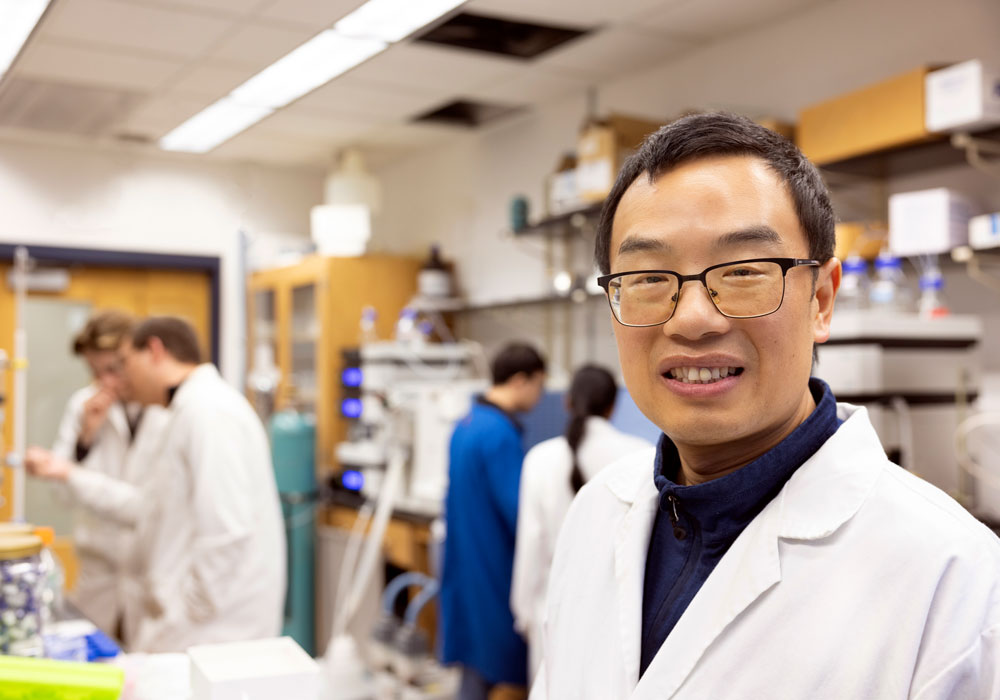Drawing from an enormous collection of genetic material, a University of South Carolina chemistry professor is on a mission to find novel bioactive agents with potential antibiotic, anti-cancer and anti-inflammation applications.
Microbial metagenomic sequences are the genetic material of microorganisms such as bacteria, fungi and viruses. Since arriving at USC in 2019, Jie Li has been collecting microbes from various sources, including plants, soil and humans, and screening for natural products that are produced by those microbes and might have medical applications. In 2020, as the COVID pandemic took hold, Li was awarded a grant from the university’s Office of the Vice President of Research to search for agents that might stymie replication of the COVID-19 virus.
Recently, Li received an early career investigator award from the National Institutes of Health to search for compounds with broader medical applications.
“We’re analyzing gene sequences to predict what enzymes could be encoded by different microbes and predict the compounds they might produce,” says Li, who collaborates with faculty in pharmacy, biological sciences and at the School of Medicine Columbia. “We call it genome mining. Drug discovery is really at the interface of chemistry and biology, and these new genome mining tools are very powerful.”
I think the biodiversity surrounding us can provide a lot of opportunities.
Metagenomics is a new field that studies the genetic material of microbial organisms to understand the natural products they produce — which is key, as most microbes can’t be cultured in their pure forms. The computational techniques Li’s research team employs to study microbial metagenomic sequences — bioinformatics and chemoinformatics — make it possible to predict what various compounds the microbes might produce and how to rapidly obtain them. That knowledge is key to finding agents that can target pathogens and cancer cells.
“If you combine these two approaches, the search becomes more targeted and more likely to accelerate downstream discovery,” he says.
While much of the genome mining Li’s team conducts use publicly available databases of microbial metagenomic sequences, they also study samples that were collected by Li’s lab from beaches in South Carolina and the mountains in North Carolina.
“We’ve even collected some root and leaf samples from medicinal plants here on campus, and we isolate bacteria from them,” Li says, adding that his lab now has a library containing hundreds of microbial species, each of them potentially capable of producing medically useful bioactive agents.
“I used to ask my students to bring back samples whenever they traveled. I think the biodiversity surrounding us can provide a lot of opportunities.”
In a previous research collaboration with faculty at the USC School of Medicine Columbia, Li isolated a class of unique lipid molecules produced by human microbiota that suppress inflammation. Li and his collaborators have submitted a patent application for the discovery, the first step toward potential drug development.
“The nature of this research always involves collaboration across several disciplines,” Li says. “I’m especially grateful for my research colleagues here at the university who help make this work possible.”
